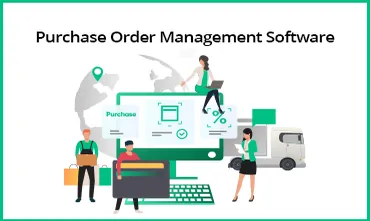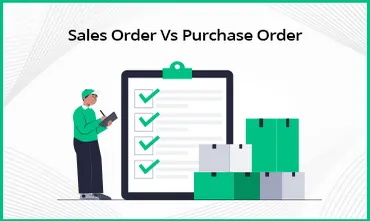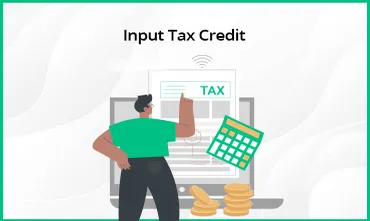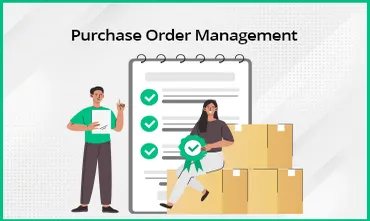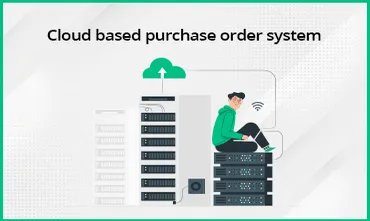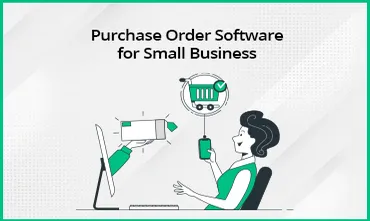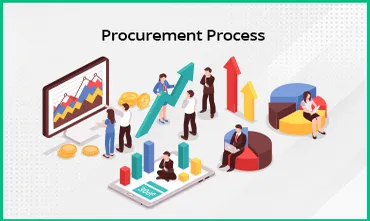The concept of sundry creditors is used a lot in the course of conducting business for large-scale businesses as well as SMEs. When your manufacturing business is operating and is involved in the purchase of raw materials or the sale of finished goods, there is always a particular amount that has been decided upon for each transaction.
The two parties, the buyer and the seller, decide this amount prior to the sale and once the price is agreed upon, the work can begin. It is not always the case that the amount is paid right away or up-front. Often, a buyer and seller will make use of what is called a credit period, and that is where the term sundry creditors becomes operational.
What Are Sundry Creditors?
Sundry creditors is a term used to describe individuals or businesses that provide goods or services on a credit basis. A business that makes use of this facility and takes goods or services from another business on credit, will refer to the provider of these goods or services as sundry creditors.
The concept of sundry creditors is made up of two words; 'sundry' and 'creditor'. In order to understand the term itself, it is important to know the meaning of both these words. The term 'sundry' is used to describe a variety of items that need not be mentioned individually.
Another term often used to describe 'sundry' is - miscellaneous. The word creditor is used to describe an organization or an individual who is involved in providing 'credit' to another organization or individual. The word 'credit' here is used to illustrate the fact that the agreed-upon price is not paid right away, rather the product is sold on a credit basis, which means it is sold on the assumption of payment in the future.
Sundry Creditor Example
In order to gain a deeper understanding of what sundry creditors actually means, let's take the help of an example. In this scenario, we will consider two parties; Shah Enterprises and Patel Pipes. Shah Enterprises is a real estate developer and the buyer in this case, whereas Patel Pipes is a pipe manufacturer and is the seller in this case.
- Shah Enterprises places an order with Patel Pipes for buying pipes worth Rs 50,000 and the date of this purchase is 1st March 2023.
- Patel Pipes has dealt with Shah Enterprises a lot in the past and conducts ongoing business with them, hence extends them a line of credit frequently.
- Due to their trust-based relationship, Patel Pipes gives Shah Enterprises 2 months of credit period.
- This means that the payment from Shah Enterprises is now due on 1st May 2023.
- Shah Enterprises will record this transaction under sundry creditors and the entire amount due will be considered as an account payable.
This sundry creditors example is a simple one, to outline how a basic sundry credit transaction may occur. Another important topic surrounding this subject is accounts payable; let's find out what it means in the next section.
Read Also - Debit Note vs Credit Note: What's the Difference?
What Is Accounts Payable?
Accounts payable is an accounting term that is used to describe a certain amount of money that a business owes another business. This term comes into play usually when a buyer has made a certain purchase from the supplier, but has made the purchase by using a line of credit.
When a seller has extended a line of credit to a buyer, this means the buyer has promised to pay the seller once the credit period comes to an end. When this occurs, the money that is owed by the buyer to the seller is defined as accounts payable in the books of the buyer. Since this is an amount that is still due to be paid, it is considered a liability in the buyer's books.
Read Also - What Is Input Tax Credit (ITC)?
What Is Sundry Creditors Management?
Let's say you run a manufacturing company in India and in the course of your operations, you have a lot of transactions that you make. These transactions are of varying nature, some are from your buyers, to whom you supply finished goods, while others are from your vendors who supply you with raw materials.
While these transactions occur, the payment is not always made up-front and at the time of purchase. Often, you will make use of a credit line, which essentially allows you to purchase raw materials from your vendors with the promise of payment at a later date.
You may end up doing this with a variety of vendors and each of these transactions will be recorded as a sundry creditor or accounts payable in your books. The overall tracking and management of this entire set of transactions is referred to as sundry creditors management.
Read Also - What Is Manufacturing ERP Software?
Why Is Sundry Creditors Management Important?
Effective sundry creditors management is an essential part of operating your business successfully in the long run. When you run a business and deal with multiple vendors and sundry creditors, it is crucial that you keep a watchful eye on the activity here.
Making sure you are on top of what is going on with your sundry creditors management system will ensure your business maintains a good reputation, which in turn helps you build a strong brand.
Let's take a look at some of the reasons why sundry creditors management is important for your business and how to mention sundry creditors in the balance sheet.
Know what you owe
Operating a business successfully means you have to be able to be agile and react fast to a dynamic environment. This means you must have complete control over your accounts and finances, to be able to deal with any and all potential scenarios.
One of the most crucial aspects of your financial health is a healthy cashflow and sundry creditors have a major role to play in this aspect. Put simply, this means having a handle on how much money is coming in and how much money is going out from your business, at any given point. The money you have coming in can be from expected sales or debt that people owe you and this can be considered an asset. However, the money you have going out of your business is the total amount of debt you have towards other businesses, such as your suppliers, and is considered a liability.
The money you have coming in can be from expected sales or debt that people owe you and this can be considered an asset. However, the money you have going out of your business is the total amount of debt you have towards other businesses, such as your suppliers, and is considered a liability.
Therefore, sundry creditors are reported as a liability on your company's balance sheet under the "Accounts Payable" or "Sundry Creditors" category. This is because they represent amounts owed by your company to its suppliers or vendors for goods or services received on credit. Until the company pays off the amount owed to the sundry creditors, it remains a liability on the company's balance sheet.
If your suppliers work with you on a line of credit, they are sundry creditors and will be noted as accounts payable in your books. At any given point, you should have complete knowledge of how much you owe to your sundry creditors. This knowledge will equip you to deal with the dynamic business environment where your business operates.
Read Also - 25 Manufacturing Business Ideas in India
Use credit to your advantage
A line of credit from your sundry creditors is an extremely valuable arrangement as it allows you to make purchases without the need for immediate payment. This helps your cash flow and in turn, helps you make your money work harder for you.
When you have a set of sundry creditors with whom you conduct business regularly, you will always have an agreement on the due date for each credit line. If you honor your due dates and make your payments on time, you will avoid any interest rates or penalties on late payments.
By honoring the terms and conditions of your sundry creditors, you are able to make full use of the credit period, giving you more control and flexibility. When you have control over what you owe to your sundry creditors, the credit line extension being given to you is put to its best use.
Effective management of creditors will enable you to hold onto your cash for a little longer. This helps you put your resources into other important aspects of your business that may need the funds immediately or that can help you grow your business.
Read Also - What Is Material Reconciliation?
Build trust and leverage your reputation
As any business owner will testify, a large part of running a business successfully rests upon the strength of your relationships. One of the most crucial relationships you can nurture and cultivate to your advantage is that with your sundry creditors.
As you build your business and try to scale, you will need all the support you can get from your partners and vendors. If you are a business owner that is known to make all payments on time to your sundry creditors, it will reflect favorably on your reputation. This will help you build trust in the market and make it easy for more vendors to work with you to help you scale your business.
Read Also - Best Inventory Management Software for Small Business
How to Implement Sundry Creditors Management?
When you are operating your business as an SME, the scale of your business will dictate how to manage debtors and creditors. Implementing an effective sundry creditors management system is crucial for the success of your business.
TranZact's forward-looking, cloud-based solutions are geared toward making your vendor management work easier and your overall business more productive. An effective sundry creditors management system, as offered by TranZact, will ensure all your data is stored in a centralized system, making every update visible in real-time.
You will be able to input all the details of your respective sundry creditors and the associated transaction details and get timely notifications and alerts so you never fall behind on your dues. Access all the sundry creditors details in one place and get insightful reports on the financials of your business. TranZact integrates each function across your business' inventory, procurement and production functions to provide you with end-to-end digital solutions, all in one place.
Read Also - What Is Minimum Order Quantity (MOQ)?
Stay Ahead of the Competition With Effective Sundry Creditors Management
As you have seen, sundry creditors in balance sheet is a common occurrence in the course of conducting business. When you are trying to run a smooth operation, both sundry debtors and sundry creditors are important for you to manage properly.
TranZact has developed solutions that can show you how to manage debtors and creditors both with the click of a button. Sundry debtors and sundry creditors are important factors in your balance sheet and taking control of their management will help your business scale with ease in the long run.
FAQs on Sundry Creditors
1. What are sundry creditors and debtors?
Sundry creditors are individuals or entities to whom a company owes money for goods or services received on credit, representing the company's liabilities. On the other hand, sundry debtors are individuals or entities who owe money to the company for goods or services provided on credit, representing the company's accounts receivable or assets.
2. How to find sundry creditors list in TranZact?
TranZact provides real-time views of sundry creditors lists through its intuitive payments module where you can see your item-wise payables based on every document. You can also access ‘Creditors Info' reports with TranZact's module, which lists all the payments and dues with respect to your supplier. You can also access the ‘Creditors Ageing Info' with provides supplier-wise, month-on-month breakup of payments to be made.
3. Who are sundry debtors?
Sundry debtors refer to individuals or entities who owe money to a company for goods or services that they purchased on credit. Sundry debtors are known as the counterpart to sundry creditors representing the company's accounts receivable.
4. Is sundry debtors a current asset?
Yes, sundry debtors are considered current assets as they represent amounts owed to the company which are expected to be collected within the same financial year or in the near future.
5. What is a sundry creditor?
A sundry creditor is an individual or entity to whom a company owes money for goods or services received on credit. They are recorded as liabilities on the company's balance sheet and represent outstanding amounts that the company is obligated to pay.
6. What type of account is a sundry creditor?
Sundry creditors are a specific category within ‘accounts payable' that includes various creditors with individual outstanding balances.
7. What are sundry debtors and sundry creditors examples?
Examples of sundry debtors include customers who owe money to a company for products or services provided on credit, while examples of sundry creditors include suppliers or vendors to whom a company owes money for goods or services received on credit.
8. Which side is sundry creditors?
Sundry creditors are recorded on the liabilities side of a company's balance sheet, representing amounts owed by the company under the accounts payable or sundry creditors category.
9. Is sundry creditors an asset or an expense?
Sundry creditors represent bills payable, which means the money that is owed by a business. Hence, it is considered a liability or expense and not an asset. It represents an obligation to make future payments, which is a liability as it involves an outflow of economic resources from the company. The opposite is true for sundry debtors.




